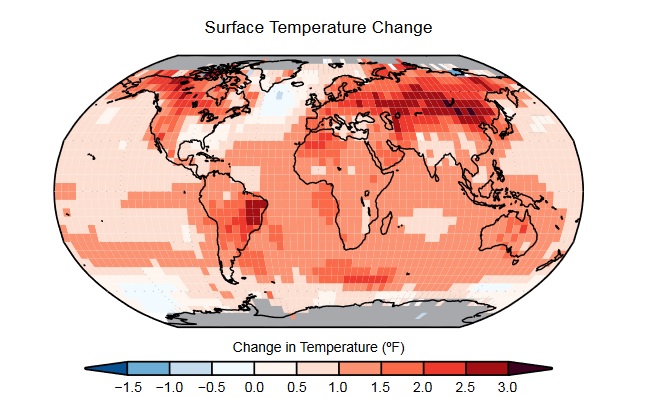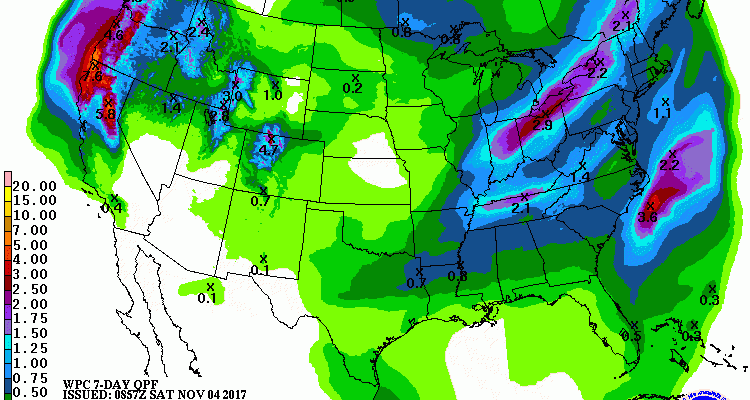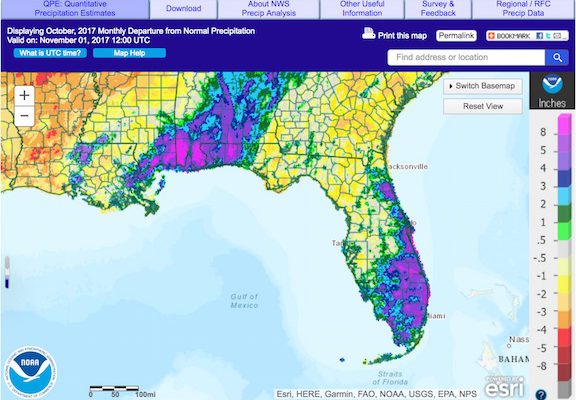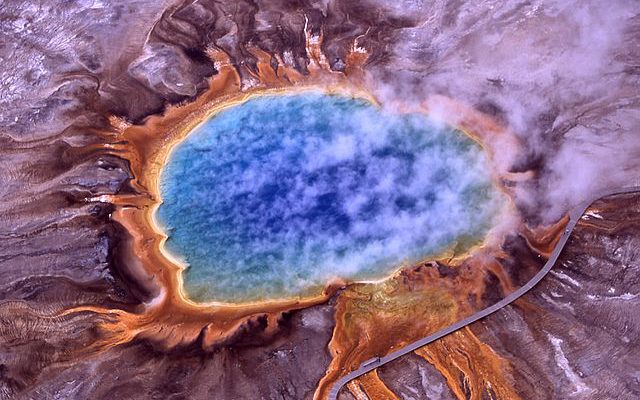-

A massive new report published by the federal government on Friday looks at causes of warming climate and concludes that it is mainly caused by humans rather than due to natural causes like solar variability. As you can imagine, there have been a number of stories published in the news describing these results. Here are…
-

The latest 7 day QPF map shows that we will get light amounts of rain this week. For most of the region, that means less than 0.75 inches. After a mostly dry weekend, rain amounts should be heaviest Tuesday through Thursday but again, total accumulations will be light for most folks. Heaviest amounts will be…
Posted in: Climate outlooks -

The latest climate outlooks for November and for the November through January period show a classic La Niña signal across the Southeast, with warmer than normal temperatures across the region but most likely along the southern coast, and drier than normal conditions also expected as the subtropical jet moves north into the Ohio River Valley.…
-

The Washington Post published a hopeful article earlier this week about the ozone hole over Antarctica, which has been shrinking ever since chlorofluorocarbons (CFCs) and related chemicals were banned from use as refrigerants. This year the ozone hole is the smallest it has been since 1988. It was the largest in 2000. The presence of…
-

The latest monthly climate summary for Florida is now available. You can find it at https://climatecenter.fsu.edu/products-services/summaries/index.php?option=com_content&view=article&id=515.
Posted in: Climate summaries -

Precipitation across Georgia in October varied quite a bit across the state. Areas affected by Hurricane Nate in the northwestern half of the state were generally wetter than normal while other areas missed by Nate and thunderstorms from a strong front later in the month in the coastal plains were fairly dry. The entire state…
-

EarthSky has an interesting report today based on some research that was reported this week at the Geological Society of America’s annual meeting in Seattle on climate impacts of the Yellowstone volcanic eruptions that took place 630,000 years ago. The study showed that there was not one but two closely-spaced eruptions that sent out a…